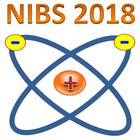Speaker
Dr
Jacques lettry
(CERN)
Description
The energetic efficiency of the 2MHz radio-frequency inductively coupled plasma heating (ICP RF) of Linac4’s IS03 H- source is twice more efficient once its standard octupole cusp in offset hallbach configuration is removed. This was shown by Particle in cell Monte-Carlo (PIC-MC) simulation results using the NINJA software [1] and confirmed by plasma characterization via optical emission spectroscopy [2], an easier plasma ignition is also anticipated. In this paper, we present preliminary results of an AlN plasma chamber IS03 H- source operated without magnetic cusp.
The high intensity option for Linac4 features an adaptation of BNL’s Magnetron. Simulation of this complex H2-Cs arc discharge plasma, where electrons are emitted form a cesiated molybdenum cathode, requires characterization of the plasma impedance dependence and knowledge of hydrogen and caesium densities. We present the measured plasma impedance is over the range of discharge current, hydrogen and caesium-densities.
1) S. Mattei PhD thesis, EPFL 7907, 2017.
2) S Briefi et. al. 2017 New J. Phys. 19 105006.
3) J. Lettry et. al. RSI 87, 02B139 (2016); doi: 10.1063/1.4936120
Primary author
Dr
Jacques lettry
(CERN)
Co-authors
Dr
Daniel Noll
(CERN)
Mr
Michael O'Neil
(CERN)
Prof.
Tiberiu Minea
(LPGP Orsay)
Prof.
Ursel Fantz
(Max-Planck-Institut für Plasmaphysik)

